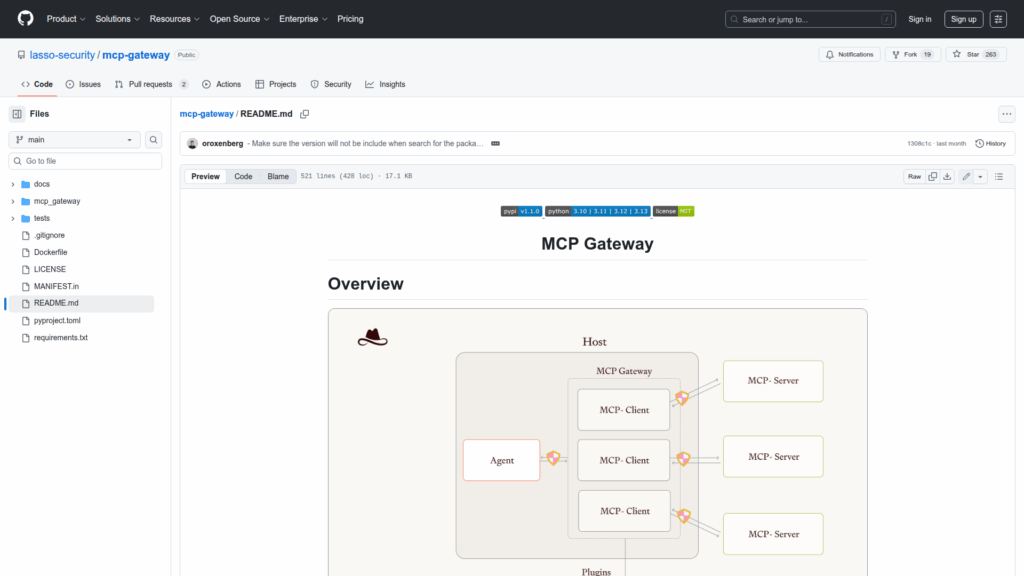Features
MCP Gateway offers a plugin-based guardrail system with built-in plugins such as basic, presidio, lasso and tracing via xetrack. It automatically masks tokens and secrets in responses and can identify PII with optional presidio integration. The Lasso plugin provides policy checks, prompt injection mitigation and content scanning via an external API. The Security Scanner performs reputation analysis using marketplace and GitHub data, scans tool descriptions for hidden instructions, and can automatically block risky MCPs while annotating mcp.json with statuses. Tracing and logging via xetrack capture tool calls and responses into sqlite/duckdb for debugging and analytics. The gateway exposes tools like get_metadata and run_tool to enumerate and invoke capabilities across proxied MCPs. Install and run options include pip and Docker, and plugins may require extra dependencies.
Use Cases
MCP Gateway reduces operational and security risk when composing multiple MCP servers by centralizing discovery, lifecycle management, and traffic sanitization. It prevents accidental leakage of credentials by masking secrets and applying configurable guardrails consistently across all proxied MCPs. The security scanner flags or blocks suspicious servers before they are loaded, improving trust when integrating third-party MCPs. Tracing and structured logs enable debugging, cost evaluation and usage analytics across tool calls, which helps teams optimize and audit agent behavior. Plugin extensibility lets organizations add domain-specific policies or detection modules while standardizing how LLMs and automated agents select and call external capabilities. The gateway supports familiar deployment formats and provides examples to integrate with existing MCP configurations.








